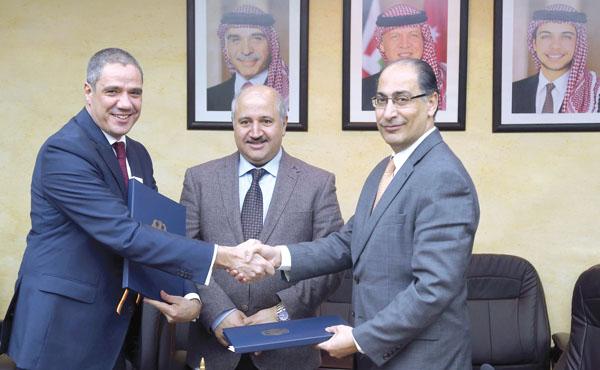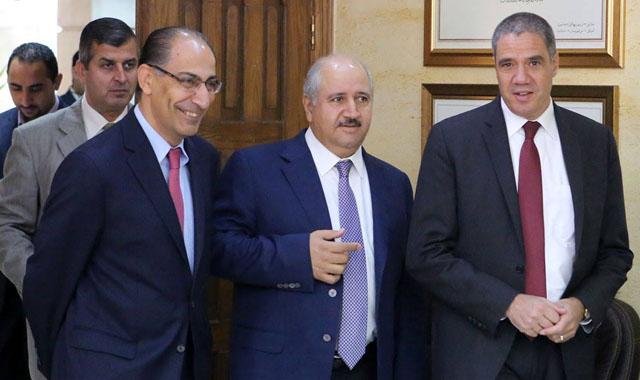You are here
German financial, technical assistance to support water sector
Jun 25,2014 - Last updated at Jun 25,2014

AMMAN — Germany and Jordan on Wednesday finalised agreements worth JD72 million on financial and technical assistance in the water sector.
Planning Minister Ibrahim Saif and German Ambassador to Jordan Ralph Tarraf signed agreements negotiated between the two countries in the past year, according to a statement released by the German embassy.
“Germany remains committed to supporting Jordan which is going through unprecedented difficulties,” Tarraf said.
“Chancellor Merkel reiterated our position only yesterday in her meeting with His Majesty King Abdullah: Germany acknowledges and commends the crucial role of Jordan and in particular the contribution of its leadership for the stability of the region,” he added.
“Germany will continue to support Jordan in its efforts to alleviate the burden of the Syrians who have found refuge in Jordan, but also of Jordanians affected by the crisis. To this end, Germany has [not only] substantively increased its contributions in humanitarian assistance, but also in development cooperation with Jordan,” the statement quoted the ambassador as saying.
“Our development cooperation remains focused on the water sector, a sector most affected by the refugee crisis in Jordan.”
The agreements signed on Wednesday include a JD9.5 million financial assistance grant to rehabilitate and improve the sewage network in Mafraq.
Additionally, preferential loans worth JD48.3 million will be used in wastewater and sanitation projects, such as encouraging the re-use of treated wastewater and efficient irrigation technologies, the embassy statement said.
The technical assistance comprises grants worth almost JD15 million to implement projects supported by German consultants and engineers. They aim at improving the water situation in the Kingdom.
One project will support Jordan in adapting to the consequences of climate change, which directly affects the country’s water resources, the statement said.
Another project aims to encourage the ecologically sustainable use of natural resources which are threatened by current overuse.
A third project supports the training of the so-called “Water-Wise Women”, while a fourth aims at building decentralised wastewater management in smaller communities that are not connected to the grid.
Finally, local communities hosting Syrian refugees will be supported with the provision of solid waste collection and processing facilities.
Related Articles
Jordan and Germany on Wednesday signed agreements on technical and financial assistance negotiated between the two countries in the past year worth 193 million euros (around JD155 million).
Water supply in the northern region, which hosts hundreds of thousands of Syrian refugees, is projected to improve thanks to a 15 million euro grant from Germany.
AMMAN — The government and the German Development Bank (KfW) on Tuesday signed four development aid agreements with a total value of 89 mill


















